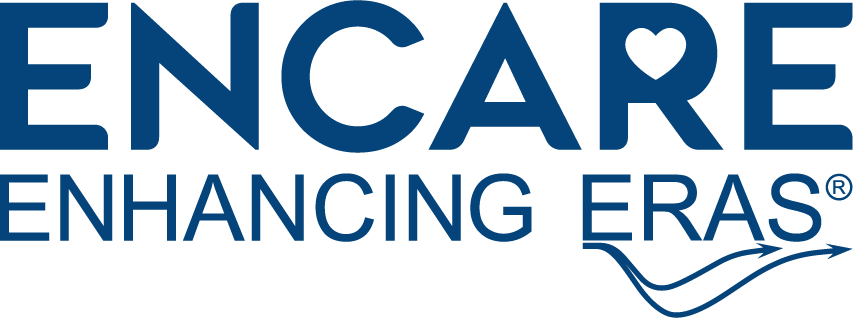As Brazil works to strengthen its healthcare system and recover from the lasting effects of the COVID-19 pandemic, discussions surrounding the sustainability and accessibility of care have taken center stage. With an increasing focus on public healthcare reform, particularly within the Sistema Único de Saúde (SUS), new strategies are needed to improve efficiency and patient outcomes, especially in surgical care. One such strategy is the Enhanced Recovery After Surgery (ERAS®) protocol, a globally recognized, evidence-based approach to optimizing perioperative care.(1)
Challenges in Brazil’s Healthcare System
Brazil’s healthcare system is grappling with several key issues:
• Strain on public hospitals: With the public healthcare sector facing high demand and limited resources, hospitals are under significant pressure. Shortages of healthcare professionals, regional disparities in care access, and long wait times for surgeries are persistent challenges.(2)
• Surgical care access: There is a notable gap in surgical care quality and availability, particularly in underserved areas. This is compounded by the fact that many hospitals lack the resources to implement advanced perioperative care systems.(2,3)
• Financial sustainability: While healthcare spending is at an all-time high, representing 10.7% of GDP, the need for cost-efficient care models is greater than ever, with budget constraints affecting the long-term sustainability of Brazil’s public health programs.(4,5)
How ERAS® Can Help
The Enhanced Recovery After Surgery (ERAS®) protocol addresses many of the challenges Brazil faces in its surgical care system by focusing on improving both clinical outcomes and operational efficiency. With its proven ability to reduce complications, lower hospital length of stay, and improve patient recovery, ERAS® offers a practical, scalable solution for Brazilian hospitals, both in the public and private sectors.(6,7)
1. Reducing Surgical Complications and Hospital Stays: Studies have shown that hospitals implementing ERAS® protocols see a reduction in postoperative complications and faster patient recovery. This not only improves the quality of care but also frees up hospital beds and resources for additional patients.(7,8)
2. Supporting Financial Sustainability: By minimizing complications and reducing the length of hospital stays, ERAS® helps reduce healthcare costs. For hospitals operating under tight budgets—especially within the SUS—this can lead to substantial savings.(8)
3. Improving Care Accessibility: Implementing ERAS® protocols can also enhance the ability of hospitals to deliver consistent, high-quality surgical care across regions. This could help mitigate some of the disparities in healthcare access that currently exist between urban and rural areas.
Encare’s Role in Optimizing ERAS® Implementation in Brazil
At Encare, we are committed to supporting Brazilian hospitals in maximizing the benefits of ERAS®. Our ERAS® Interactive Audit System (EIAS)—the only tool endorsed by the ERAS® Society for tracking compliance—provides hospitals with a structured, data-driven approach to monitor outcomes and improve protocol adherence.
By implementing ERAS® with the support of Encare’s EIAS platform, Brazilian hospitals can:
• Enhance patient outcomes while reducing costs: Achieve fewer surgical complications, shorter recovery times, and substantial cost savings through better compliance with ERAS® protocols, which have been demonstrated to improve overall care quality.
• Drive continuous improvement in perioperative care: Utilize real-time insights from EIAS to identify areas for optimization and ensure hospital teams can make targeted improvements to enhance the perioperative care process.
• Join the global ERAS® community: Collaborate with world-leading healthcare institutions, participate in international research projects, and benchmark performance against global standards to remain at the forefront of surgical care advancements.
A Call to Action for Brazilian Healthcare
The future of Brazil’s healthcare system will depend on how efficiently it can address its key challenges—improving access to care, reducing costs, and ensuring that patient outcomes are at the forefront of every decision.
By embracing ERAS® and integrating data-driven solutions like EIAS, Brazilian hospitals can be leaders in transforming perioperative care.
To learn more about how Encare can support your institution’s ERAS® journey, get in touch with our team here.
References:
1. OECD Reviews of Health Systems: Brazil 2021
OECD iLibrary: Brazil Healthcare Overview
2. Pan American Health Organization (PAHO)
PAHO: Challenges in Accessing Surgical Care
3. Observatório de Análise Política em Saúde (OAPS)
OAPS: Brazil’s Public Health Debate
4. OECD Health Policy Overview: Brazil 2023
5. OECD Health Policy: Health at a Glance 2021
6. Ljungqvist O, Scott M, Fearon KC. Enhanced recovery after surgery: a review. JAMA Surgery
7. Thiele RH, Rea KM, Turrentine FE, et al. Standardization of care: Impact of an enhanced recovery protocol on length of stay, complications, and direct costs after colorectal surgery. Journal of the American College of Surgeons
Link to the article on ERAS® benefits
8. Gustafsson UO, Scott MJ, Schwenk W, et al. Guidelines for perioperative care in elective colonic surgery: Enhanced Recovery After Surgery (ERAS®) Society recommendations


